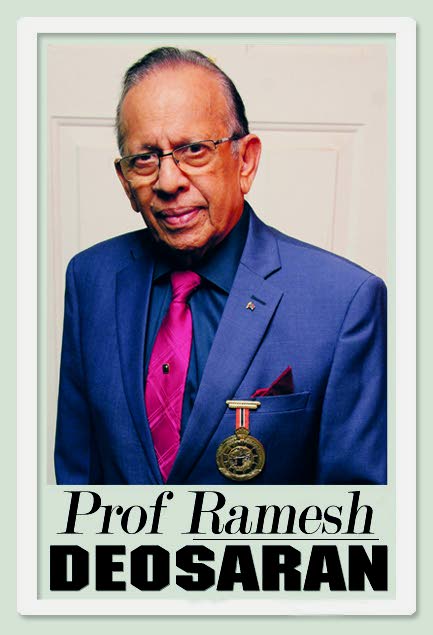A puzzling democracy

Two weeks ago this column discussed the local aspiration for this country to be “like Singapore.” Could it? Should it? No doubt, Singapore, since its independence in 1963 has been celebrated as a success story regarding GDP growth, port efficiency, multi-ethnic harmony, public safety and stable government (its population is six million).
As Singapore zoomed up from a GDP of US$918 million in 1963, then to almost US$400 billion (estimated) in 2020, the comparison was energised. After all, Trinidad and Tobago had oil, gas, a transshipment port and an agricultural base.
Singapore had less land space and declining tin and rubber industry. It had to invent ways to survive. Faced with economic challenges in the eighties, Singapore had to diversify and expand quickly into high technology, financial services, banking, tourism, transportation and communication. Its post-1990 successes were commendably recognised.
There began growing resentment against the “dictatorship” tendencies of the 60-year-old People's Action Party (PAP) government, including the strong-arm rule from 1959 by PM Lew Kuan Yew (who died in March 2015).
Singapore’s constitution contains laws against sedition and subversion similar to this country's. For example, it is unlawful to cause fear or organised violence against others or property, to excite disaffection against the president or government, to promote feelings of ill-will and hostility between different races or other classes likely to cause violence.
At the same time, while Singapore allows the right to free speech and assembly, there are several restrictions and penalties “in the interest of security, public order or morality.”
“Public order and morality” include no public spitting or urination, no littering or graffiti, no public chewing gum, etc. Early on as prime minister, Lee Kuan Yew pledged to keep his city-state “clean, orderly, honest and happy.”
We here remain challenged by littering, spitting and public urination.
With a first-past-the post system and no senate, the ruling People’s Action Party (PAP) has been in power since the 1959 election (winning 43 of 51 seats) up to the 2020 election, when the party won 83 of the 93 seats with 61 per cent of the votes. Singapore has compulsory voting and a compulsory national service scheme.
The cracks in the country’s ethnic-harmony objectives partly arise from growing political opposition within ethnic minorities and the consequent formation of minority parties, particularly within the Indian and Islamic communities. During the last ten years particularly, serious questions have been raised by independent researchers over the country’s “one party” image, press freedom, patronage and discrimination in government services. The ruling PAP has consistently denied these allegations.
Chris Lydgate’s book, Lee’s Law: How Singapore Crushes Dissent, states: “The city-state of Singapore represents an unprecedented feat of physical, social and political engineering, but Singapore's prosperity comes at a high price: the erosion of human rights.”
The government has established the Singapore Broadcasting Corporation, which monitors and controls all local radio and television broadcasts. Is this possible here?
The Internal Security Act is used to shut down criticisms of government by such organisations as the Law Association, the Catholic Social Workers Group. The PAP government created the 1974 Newspapers and Printing Act, requiring print and broadcast media to apply for a licence to operate.
Is this possible here? Such licences can be revoked by the relevant minister.
These controls came some years after the Lee Kuan Yew government arrested dozens of communists, businessmen and politicians for alleged corruption or subversion.
Manipulation of the electoral system also attracts opposition. Changes in electoral boundaries, for example, are now undertaken by the PM's office.
All such “soft authoritarianism” has been reliably documented in researcher Netina Tan’s 2013 analysis Manipulating Electoral Laws in Singapore, which led to the frequently-asked question: is Singapore a democracy or a dictatorship? The PAP government insists Singapore is democratic, but too many observers see the contradictions as puzzling.
Is there a price that citizens must pay in order to achieve security, political stability and economic progress in a multi-party system?
The message for our country is clear. While we may be more democratic but less prosperous and safe than Singapore, we should cherish and protect our basic rights and freedoms and develop attitudes and systems to utilise these to help make our society more prosperous and safe.
The grass is not always greener on the other side.


Comments
"A puzzling democracy"